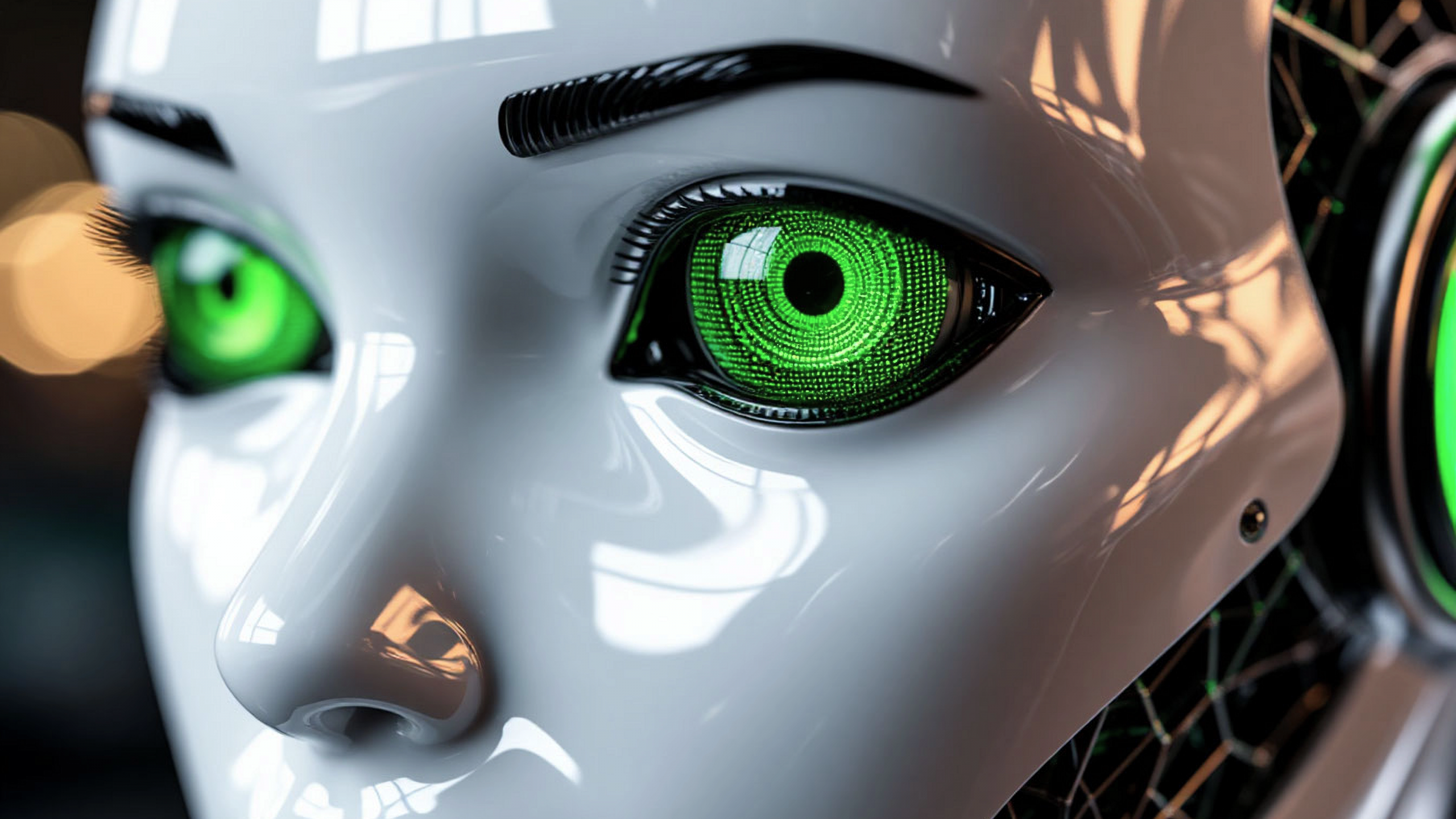Computer Vision.
Real-time recognition, real-world results
An individual approach to the development of computer vision solutions is what we primarily follow in our work with our clients. Combining many years of experience in Artificial Intelligence and Machine Learning, and custom software development in various industries, our team of professionals offers you comprehensive Computer Vision solutions tailored to your needs.
What Is Computer Vision?
Computer Vision is a field of Artificial Intelligence and computer science that allows machines to interpret and extract meaningful information from visual data such as images and videos. The purpose of this process is to replicate or surpass human visual perception in software and hardware systems.
At a high level, computer vision systems perform tasks such as:
- Image classification and object detection
- Semantic segmentation
- Instance segmentation
- Tracking objects
- 3D reconstruction
- Optical Character Recognition (OCR)
- Face and gesture recognition
Modern Computer Vision relies heavily on deep learning, in particular convolutional neural networks (CNNs) and transformer-based architectures (for example, Vision Transformers or ViTs). These models study hierarchical representations of visual data, providing high accuracy in complex recognition tasks.
Common frameworks and libraries include:
- OpenCV for traditional image processing
- TensorFlow, PyTorch and Keras for deep learning
- YOLO, Mask R-CNN, Detectron2, and Segment Anything Model (SAM) for object detection and segmentation
What Industries Use Computer Vision?
Autonomous systems: recognition modules in self-driving cars (for example, for lane detection or pedestrian tracking)
Healthcare: Medical image analysis (e.g. radiology, dermatology)
Manufacturing: Defect detection, quality assurance through visual inspection
Retail: stores without cash registers, product identification on the scales, compliance with the planogram, customer analytics
Security: surveillance, facial recognition, anomaly detection
As advanced computing evolves, many Computer Vision applications now run on optimized hardware such as NVIDIA Jetson, Google Coral, or Apple Neural Engine, allowing real-time inference with low latency.
In essence, Computer Vision transforms raw visual data into structured, usable intelligent data that automates work, improves user experience, and drives innovation across various industries.
10 Advantages Of Computer Vision
1. Automation of visual tasks
Computer Vision automates tasks that traditionally require visual control by humans. These are quality control, supervision, and document processing. This advantage allows you to reduce labor costs and the number of human errors.
2. Speed and scalability
Machines can process thousands of images or video frames per second, which far exceeds human capabilities. This enables large-scale, real-time processing in areas such as autonomous driving, security, and logistics.
3. Consistency and accuracy
Unlike humans, Computer Vision systems are not subject to fatigue or subjective biases. After training and calibration, they provide stable, reproducible, and highly accurate results.
4. Increased security
In areas such as manufacturing, transportation, and construction, Computer Vision can detect hazards or unsafe behavior in real time, helping to prevent accidents and improve workplace safety.
5. Real-time decision-making
Integration with advanced devices helps Computer Vision technology make instant decisions, such as stopping a robotic arm when a defect is detected or helping a self-driving car avoid obstacles.
6. Detailed data extraction
Computer Vision allows you to extract structured data from unstructured visual content (for example, extract tables from scanned documents or identify patterns in satellite images).
7. Cost-effectiveness over time
Although initial implementation can be expensive, Computer Vision reduces long-term operating costs by increasing efficiency, reducing error rates, and reducing reliance on manual controls.
8. Improving the quality of customer service
In retail and consumer technology, Computer Vision supports features such as virtual fittings, intelligent ordering, facial recognition, and personalized recommendations, making user interaction more engaging and effective.
9. Provides predictive analytics
By capturing and analyzing visual patterns over time (such as equipment wear), Computer Vision allows for preventive maintenance and analysis of long-term trends.
10. Compatibility with the Internet of Things and Artificial Intelligence systems
Computer Vision can be integrated with Internet of Things (IoT) devices, robotics, and Artificial Intelligence pipelines, acting as the “eyes” of intelligent systems, enhancing autonomy, control, and adaptive behavior in intelligent environments.
What Services Do We Offer?
Usetech offers a universal Computer Vision core designed to solve tasks of any scale:
- Monitoring of PPE (Personal Protective Equipment)
- Counting of finished products
- Control over employee actions
- Defect or damage detection
- Detection and control of equipment on site
- Any custom development requested by the client
Key Application Scenarios of Computer Vision:
- Object recognition
- Defect detection
- Movement control
- Face recognition
- Action recognition
- Object characteristic determination
How Do We Work on Computer Vision Services?
Contact us to discuss your request
Tell us about your task, and we will offer you a solution that optimizes your business processes and generates income from investments.
We evaluate the possibilities of implementation
Are you not sure if this solution is possible? Our team of experts will analyze your idea, confirm its technical feasibility, and select an implementation option.
Choosing the right equipment
We will help you select and integrate the necessary equipment for accurate data collection and efficient processing.
Creating an individual model
We take your request into account when developing a Computer Vision model, whether it’s recognizing an object or evaluating it.
Optimizing the performance of the models
We configure models to work in real-world conditions, ensuring their fast, accurate and efficient operation in various environments.
Deployment and launch
Our team of professionals with extensive experience is engaged in the integration, deployment, and maintenance of the model, so that the process runs smoothly.
Post-launch support
We stay in touch with you after the launch of the model: we help with improvements and introduce new features based on your requests and business growth.
Our Practice
- Metallurgical Holding. Recognition of personal protective equipment.
- Industrial Enterprise. Recognition of conveyor belt damage.
- Mining Holding. Recognition of ore granulometric composition
